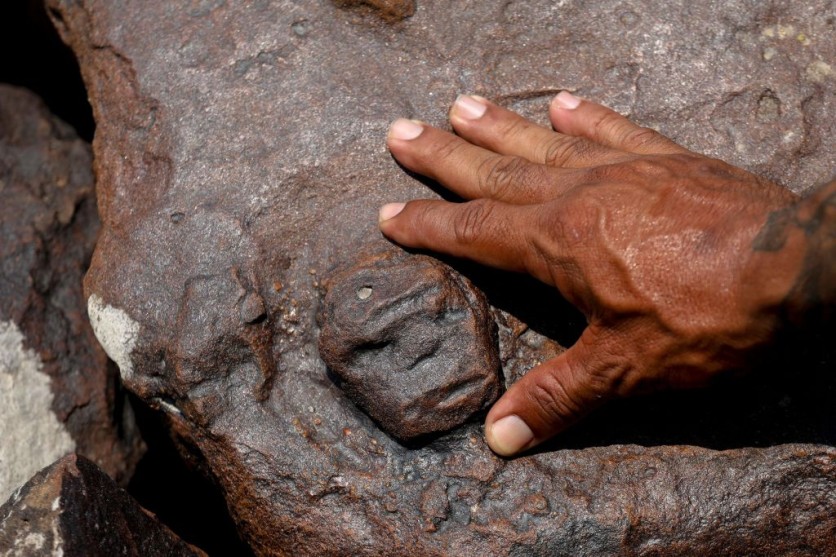An extreme drought gripping parts of the Amazon has unveiled a stunning archaeological treasure trove.
Phys.org tells us that as the Negro River's water levels dropped to their lowest in over a century, dozens of ancient rock carvings were exposed, dating back around 2,000 years.
These engravings, submerged beneath the river's waters, have left both scientists and the public in awe.

Unbelievable Discoveries from a Drying River
For Livia Ribeiro, a long-time resident of Manaus, the Amazon's largest city, this discovery was unbelievable. "I thought it was a lie... I had never seen this. I've lived in Manaus for 27 years," said Ribeiro, an administrator, after witnessing these mesmerizing relics.
The site, known as Praia das Lajes, was first discovered in 2010 during another dry spell, although not as severe as the current one.
It stands as an archaeological site of "great relevance," according to Jaime Oliveira from the Brazilian Institute of Historical Heritage (Iphan).
A Look at the Ancient Engravings
These newly revealed engravings provide a unique glimpse into the emotions and expressions of the people who lived here millennia ago.
Most of the carvings feature human faces, ranging from rectangular to oval, with some displaying smiles and others bearing grim expressions.
"The site expresses emotions, feelings, it is an engraved rock record, but it has something in common with current works of art," said Oliveira.
Read Also : Amazon Forests May Still Be Hiding Over 10,000 Ancient Structures, According to Archaeologists
Amazon's Drought Problem
However, this awe-inspiring discovery also raises concerns about the fragile state of the Amazon. The region depends on its intricate network of waterways for transportation and supplies, and the drought has disrupted daily life for the local population.
The severity of this year's dry season can be attributed to El Niño, an irregular climate pattern over the Pacific Ocean that exacerbates the impacts of climate change.
According to reports, the Amazon River reached its lowest level in almost a century just last week.
The region's most populated city, at the meeting point of the Rio Negro and the Amazon River, reported 13.59 meters (44.6 ft) of water last week, compared to 17.60 a year ago.
This is the lowest level recorded since records began in 1902, surpassing the previous all-time low reached in 2010.
While the exposed carvings have thrilled scientists, there is a growing worry about the future of the Amazon River itself.
Livia Ribeiro encapsulates these concerns: "We come, we look at (the engravings) and we think they are beautiful. But at the same time, it is worrying... I also think about whether this river will exist in 50 or 100 years."
More Discoveries from the Amazon
In other news, a study conducted by archaeologists hints at the vast untapped archaeological potential hidden within the Amazon basin.
It is believed that over 10,000 undiscovered pre-Columbian archaeological sites are scattered throughout this vast, dense jungle.
The Amazon basin has been home to Indigenous societies for over 12,000 years, leading to the creation of ancient earthwork structures and landscape modifications. These have had a lasting impact on the composition of the region's modern forests.
Stay posted here at Tech Times.

ⓒ 2025 TECHTIMES.com All rights reserved. Do not reproduce without permission.




